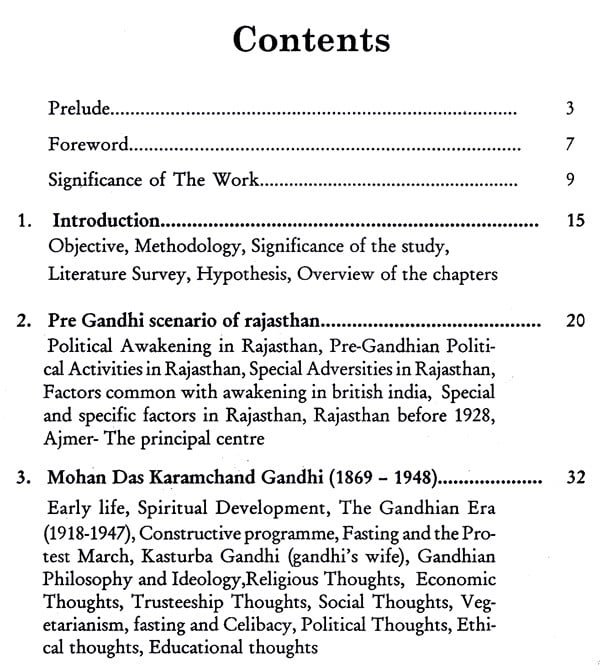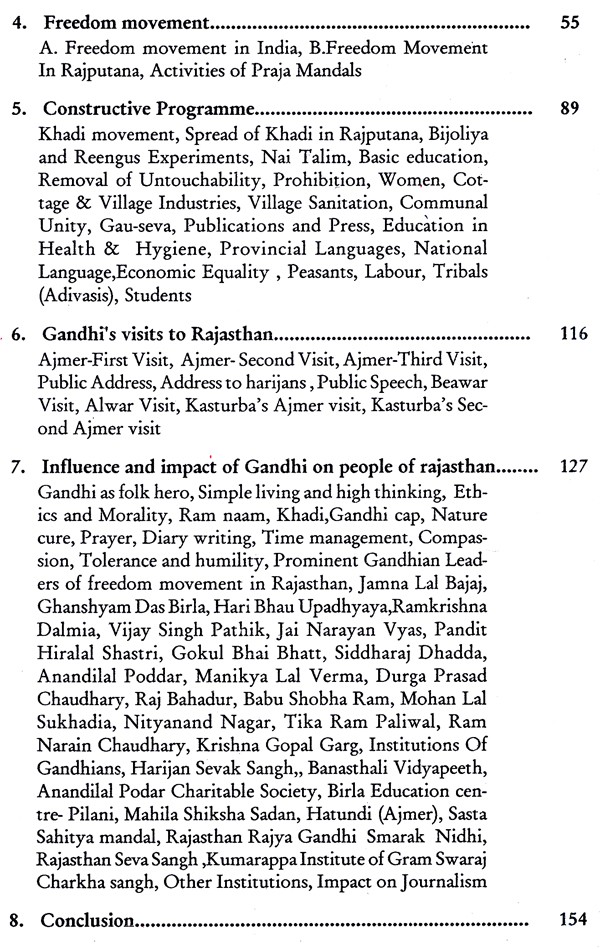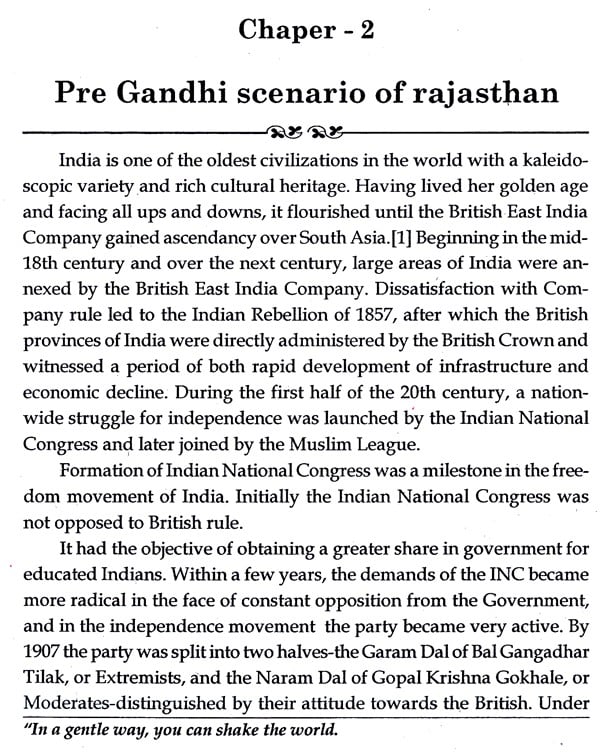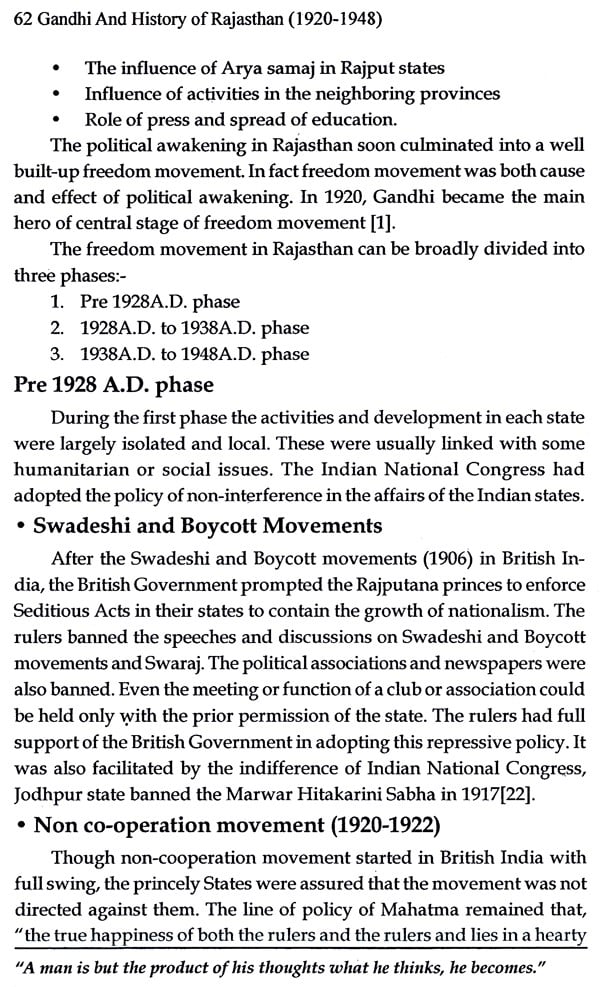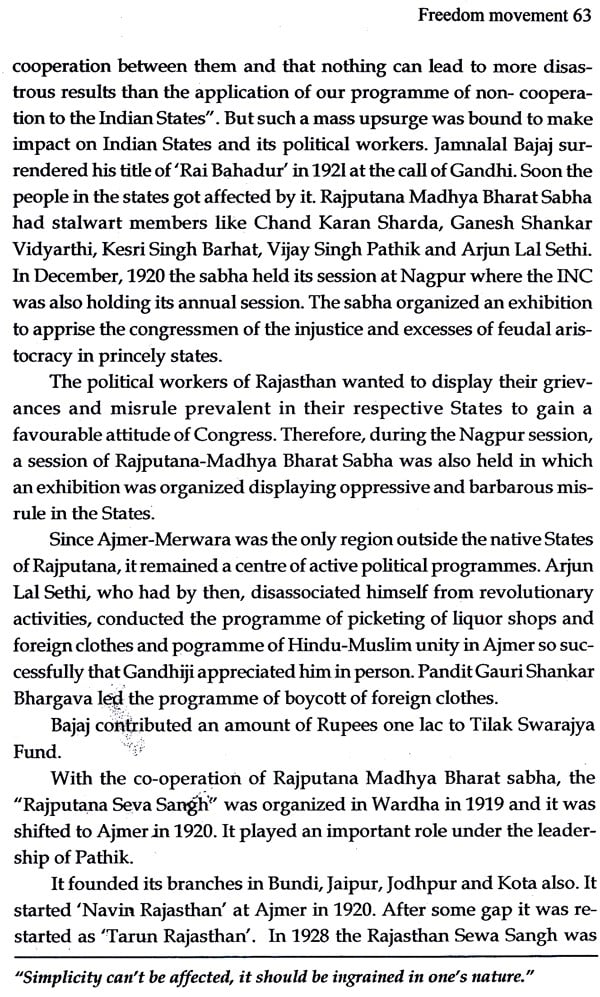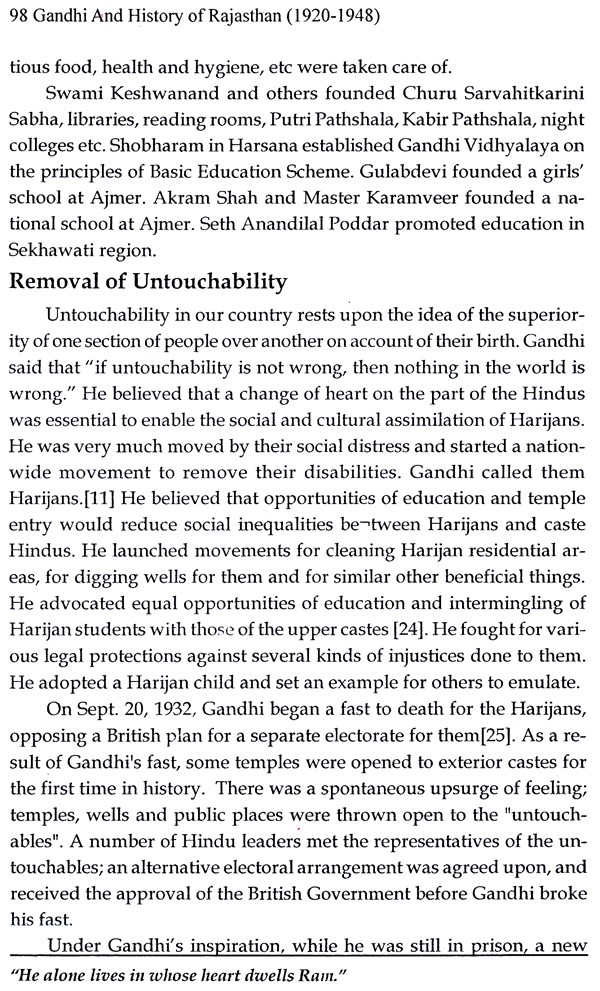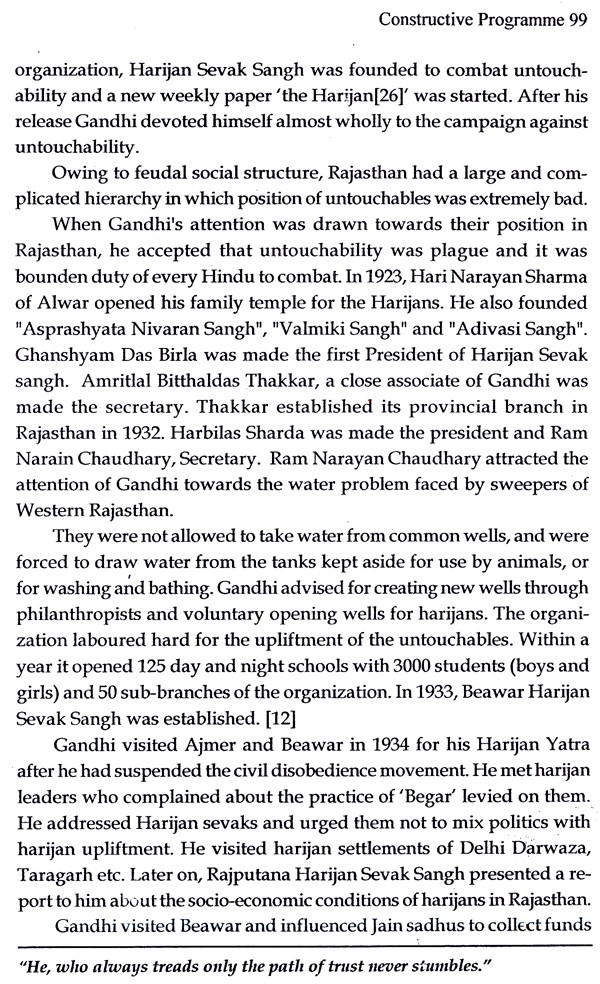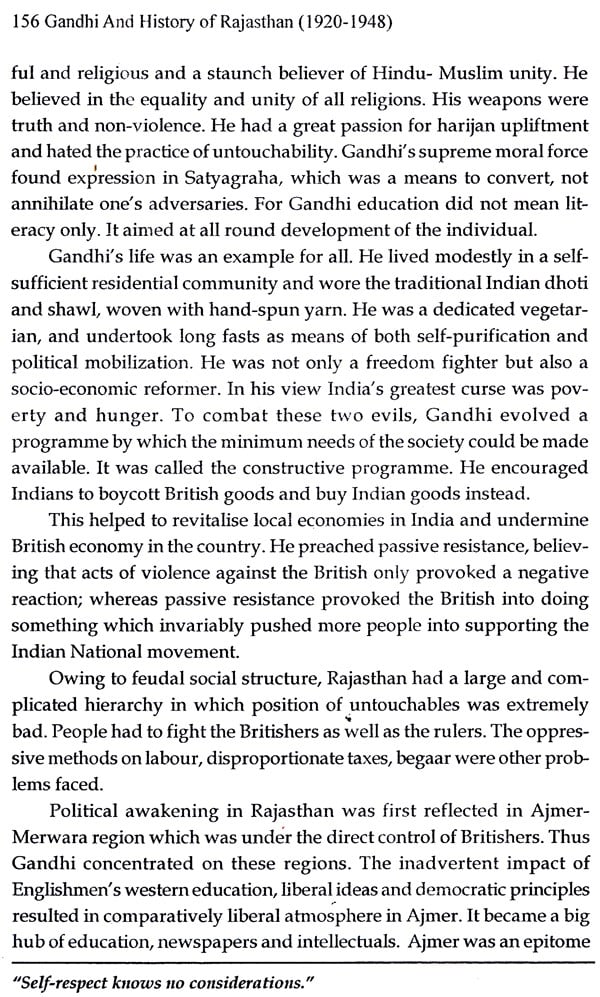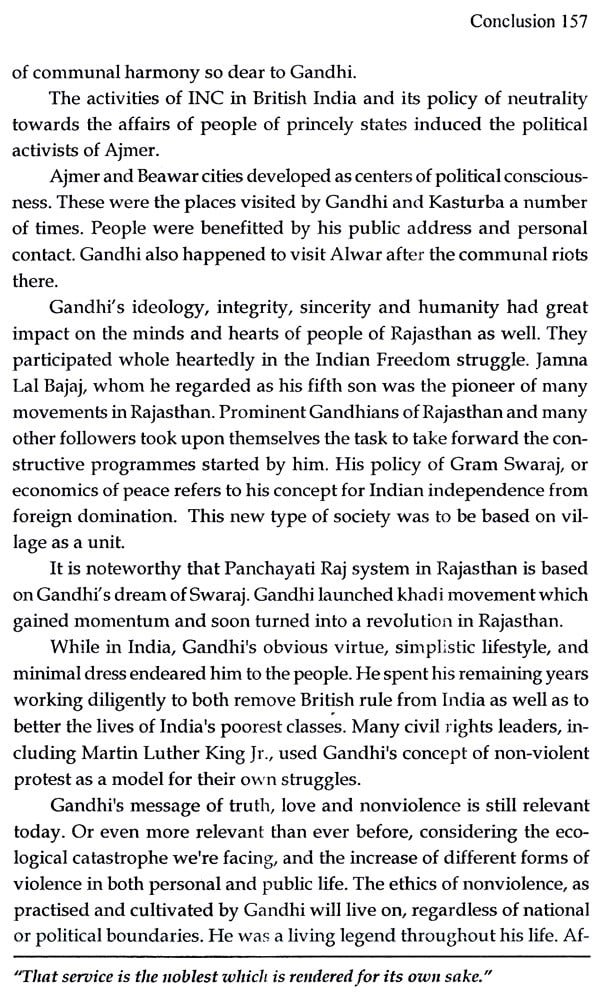
Gandhi And History Of Rajasthan
Book Specification
| Item Code: | NCZ105 |
| Author: | Dharmendra Bhatnagar |
| Publisher: | Books Treasure |
| Language: | English |
| Edition: | 2018 |
| ISBN: | 9789384385422 |
| Pages: | 159 |
| Cover: | HARDCOVER |
| Other Details | 9.00 X 6.00 inches |
| Weight | 340 gm |
Book Description
Gandhi and History of Rajasthan (1920-1948) by Dr. Dharmendra Bhatnagar is an important academic contribution which is outcome of his research for Ph.D. degree. Now it is being presented before the scholars in the form of published book. Gandhi himself was not involved in the political and constructive activities in Rajasthan directly but his ideological influence had ample impact on the history of Rajasthan. The author has collected massive source material to evaluate the role and impact of Gandhi and Gandhism in the context of Rajasthan. The present book is first attempt of its kind on modern history.
The princely states of Rajasthan came under the British paramouncy due to their political compulsion. By the end of 1818 all these states except Sirohi came under the British subordination. The state of Sirohi joined the British in 1823. Thus, an unholy alliance came into being between native feudalism and British imperialism, which resulted into beginning of reactionary and autocratic form of political system. The princely rulers and feudals disassociated themselves and became responsible to their British Master's because their very existence depended on the mercy of British. They looted their masses to fulfill imperial obligations and to satisfy their own extravagance. In such political and administrative set up the people was living pathetic life. The legal and civil rights of the people were non-existent and more-over there was no mechanism for redressal of their grievances. In such conditions the people saw a ray of hope in the Gandhian ideology of satyagraha and non-violence.
Gandhi was not in favor of agitation in the princely states. Hence, the Congress decided at its Nagpur session not to intervene in the affairs of the native states. Gandhi supported the constructive program in the princely States which included reformist activities.
**Contents and Sample Pages**
